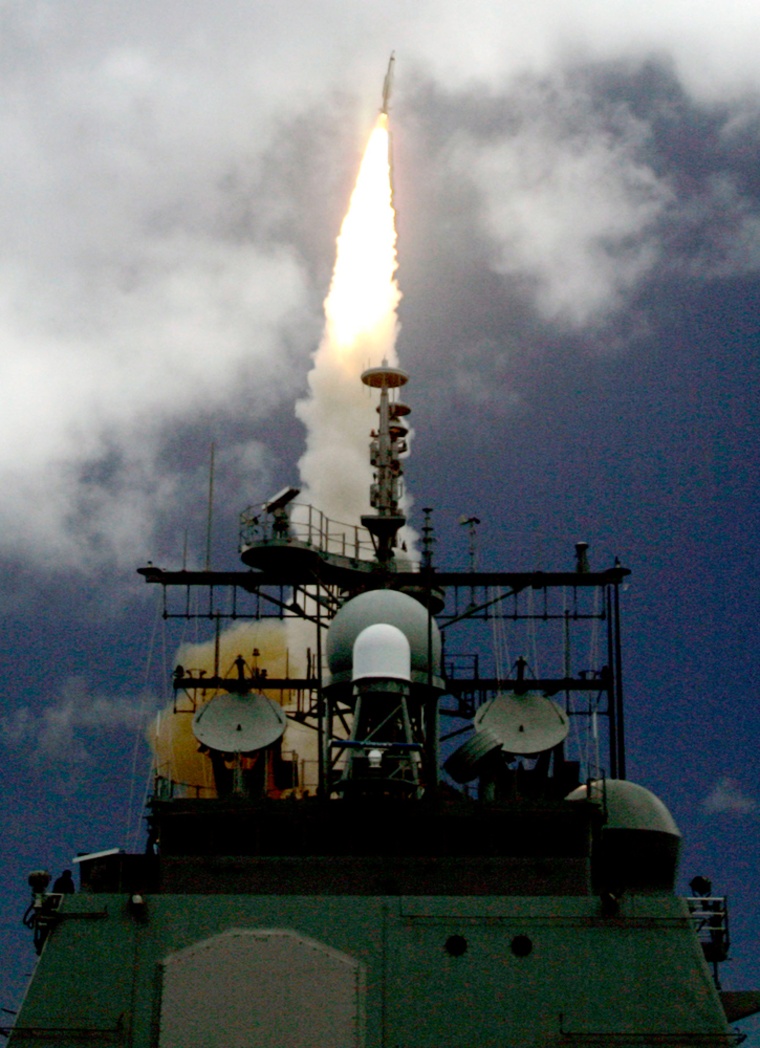Many Asian nations would cheer if the Americans shot down a long-range missile tested by North Korea, but a failure would raise unsettling questions for allies that rely on the U.S. military umbrella.
The response to North Korea is being watched by U.S. allies as a barometer of how committed Washington is to protecting them. Some already worry the drawn-out conflict in Iraq may make the United States wary of getting involved in other foreign conflicts.
The U.S. government has said it is relying on diplomacy to head off the suspected test, but there has been speculation it might use its fledgling missile defense system. The Taepodong-2 is believed capable of reaching the American mainland, which is troubling for U.S. officials because North Korea claims to have nuclear weapons.
If the U.S. shot down the missile, “the Japanese would see it as proof that the Japan-U.S. alliance is reliable, and feel confident that the United States will come to the rescue,” said Takehiko Yamamoto, international politics professor at Waseda University in Tokyo.
Strike could affect U.S. role
A successful strike would also lead to more calls for a stronger U.S.-Japan security alliance, he said.
But if the U.S. interceptor missile missed the target, Japanese public opinion could become split, Yamamoto warned. Some would want more military spending to improve the system, but others would call for more diplomacy and perhaps looser ties with America, he said.
The United States and Japan signed an agreement Friday to strengthen their cooperation on missile defense. The signing came just hours after Japanese officials revealed that a high-resolution radar to detect incoming missiles had been deployed at a base in northern Japan.
Andrew Yang, a senior analyst at the Chinese Center for Advanced Policy Studies in Taiwan, said failing to hit the missile would be a colossal embarrassment for Washington and would fuel doubts about the missile defense system’s role in regional security.
He said Taiwanese are watching how the situation plays out because the island might have to rely on U.S. forces in case China’s military tried to forcibly reunite Taiwan with the mainland regime. Taiwan split from China amid civil war in 1949.
‘A clear message’
Knocking down North Korea’s missile “would send a clear message that the U.S. would not be threatened by belligerent military actions,” Yang said. “It would send the message that the U.S. is willing to defend its allies in the region.”
Attempting to shoot down the missile would be a high-stakes gamble for the Pentagon itself. President Bush ordered the controversial and expensive program accelerated after taking office, and critics question whether it will work.
Air Force Lt. Gen. Henry A. Obering III, director of the Missile Defense Agency, refused Friday to say whether the system was on alert for a possible intercept mission. But he noted it was designed specifically to defend U.S. territory against missile threats from North Korea.
Washington also must consider that taking a shot at a North Korean missile could escalate tensions on the Korean Peninsula, which is one of the world’s most heavily militarized regions.
“South Korea probably wouldn’t support it openly,” said Kenneth Wells, director of the Center for Korean Studies at Australian National University. “There would be some division in the government, but if they were forced to make a comment one way or another, I suspect it would be that it wasn’t a helpful thing to do.”
China concerns add to mix
Yang said China also wouldn’t want to see U.S. forces try to down the missile. “The bottom line for China is that they don’t want any escalation of tension in the region,” he said.
Still, K.S. Nathan, a regional security analyst at the Institute of Southeast Asian Studies in Singapore, said many Asians would be pleased to see the U.S. stop the missile test.
“I think the general consensus would be to see that North Korea is disciplined in some way or prevented from launching the missile,” Nathan said.
Hugh White, head of the Strategic and Defense Studies Center at Australian National University, said there are other non-diplomatic factors being considered by the Americans.
He said that while it would be gratifying for the Americans to knock down the missile, they might be better off letting the North Koreans launch it.
“They’ll learn a lot about the state of North Korean technology,” White said. “A lot of my friends in the CIA are saying: ’No, no, no. Let it fly.”’
